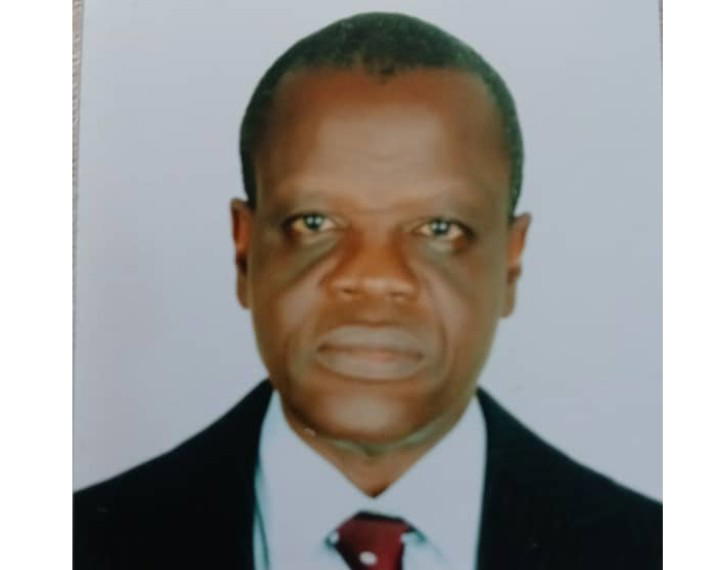President Bola Ahmed Tinubu’s latest exercise of the prerogative of mercy has stirred politics and principle in equal measure. In a sweeping decision endorsed by the National Council of State on Thursday, October 9, the presidency announced “clemency to 82 inmates,” “reduction of prison terms of 65 others,” commutation of seven death sentences to life, and posthumous pardons for national figures including Herbert Macaulay and Mamman Vatsa.
Among the living beneficiaries was former House of Representatives member Farouk Lawan—convicted in the $3 million bribery scandal linked to the 2012 fuel-subsidy probe.
For Lawan, the pardon is not merely bureaucratic; it is existential. In a statement of gratitude, the former Kano lawmaker effusively said “To a fatherly, compassionate, and decisive political leader, His Excellency, President Bola Ahmed Tinubu, GCFR, God, and history shall remember you.” He added: “Mr President has cast a warm blanket over me, pulling me back from the harshness of yesterday’s cold.” And, crucially for his public re-entry: “My hope is renewed.”
Those three sentences—effusive, personal, and political—frame what comes next. Lawan’s conviction history is a matter of record: on January 26, 2024, the Supreme Court “affirmed the conviction… over the $3 million bribery charge” and left in place the five-year term set by the Court of Appeal.
Lawan was a towering figure in Nigeria’s legislative procedures at the beginning of the Fourth Republic. A former lecturer, he easily transformed into one of the power mongers in the House of Representatives and in due season he even acquired the leadership of The Integrity Group who pushed out Patricia Etteh over unexecuted plans for house refurbishment.
He represented Bagwai/Shanono in Kano, a state that will be a top-tier battleground in 2027; it is no wonder his own words linger on “active citizenship with its unavoidable service imperative.”
The Tinubu presidency, for its part, has supplied a clear public rationale for the mercy list. The official press release explains that Lawan and three other named ex-convicts “were pardoned to enable them to integrate into society, having demonstrated sufficient remorse.”
The same document lays out the administrative backbone: a 12-member Presidential Advisory Committee on the Prerogative of Mercy (PACPM), chaired by the Attorney-General, whose report “was presented to the Council of State… as required by the constitution.” The numbers were granular too: “A total of 175 beneficiaries are recommended,” covering inmates and ex-convicts, living and deceased.
Politically, the Lawan element of the decision will be read through the prism of Kano. After a decade defined by the fuel-subsidy saga and the long arc of litigation that followed, Lawan is now a free political actor telling Nigerians that “a re-dedication to the ideals of Nigeria is upon me.” Those in Tinubu’s orbit who believe in the power of symbolic reconciliations will argue that such statements can soften edges in a competitive northern state. Yet the counter-argument is just as familiar—and just as quotable.
When President Muhammadu Buhari pardoned two former governors serving time for corruption in 2022, the Socio-Economic Rights and Accountability Project (SERAP) warned of the broad damage such pardons can do to credibility. And also to those who lead the prosecution of suspects.
In an open letter, SERAP urged Buhari on a reversal and to “use his ‘good offices to urgently review and withdraw the pardon’”—and issued a durable caveat: “Impunity for corruption will continue as long as influential politicians escape justice for their crimes. The constitutional power of prerogative of mercy ought not to be an instrument of impunity.” Those lines, written about a different set of beneficiaries under a different president, nonetheless encapsulate the criticism every administration faces when clemency touches politically exposed persons.
Nor can anyone claim ambiguity about Lawan’s judicial status before the pardon. The Supreme Court ruling ending his criminal appeal was unambiguous as it affirmed his conviction over the $3 million bribery charge.
So, can mercy translate into mileage for Tinubu in Kano? Your correspondent cannot provide an answer for now.
The presidency’s justification is the now-standard reintegration logic—”integrate into society, having demonstrated sufficient remorse”—and a numerical sweep that also included the formal pardon of the Ogoni Nine and other historic redresses designed to project national healing.
On Lawan’s side, there is deliberate moral language—”grateful for the mercy which Allah (SWT), through Mr. President and my country have shown me”—paired with a pledge that “my faith in the greatness of our Fatherland never wavered, nor did my resolve to contribute to it ever weaken.”
Critics, however, counter with equally precise language from the civic space. SERAP’s warning that a pardon “undermines the authority and independence of the judiciary” and risks making equality before the law look conditional remains a concise indictment of mercy’s political cost.
The electoral question, however, lies in Kano’s convoluted texture, not in Abuja’s press notes. Mercy may reopen doors for Lawan among old allies; it may also mobilize opponents who see the fuel-subsidy bribery case as a moral line. The only voice that can decisively swing that argument is Lawan’s—if he can match rhetoric to action. For now, he has chosen the language of gratitude and recommitment: “My hope is renewed,” he says, and “a re-dedication to the ideals of Nigeria is upon me.” Those who view politics through coalitions will hear in that a readiness to re-enter public life under the banner of reconciliation. Those who view it through accountability will insist that a pardon changes one’s legal status, not one’s moral ledger.
The post Farouk Lawan embraces Tinu’s renewed hope after bribery conviction pardon, by Emmanuel Aziken appeared first on Vanguard News.

